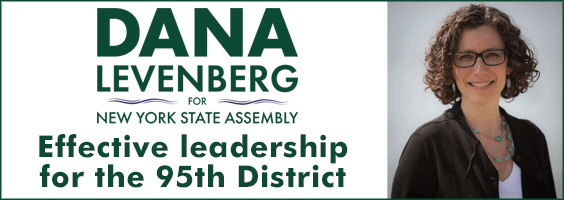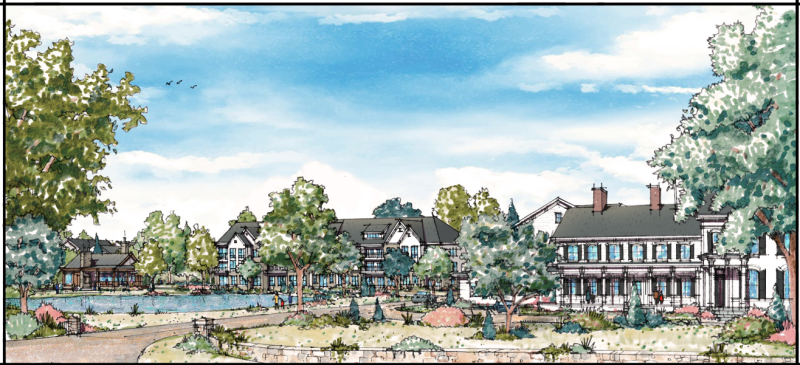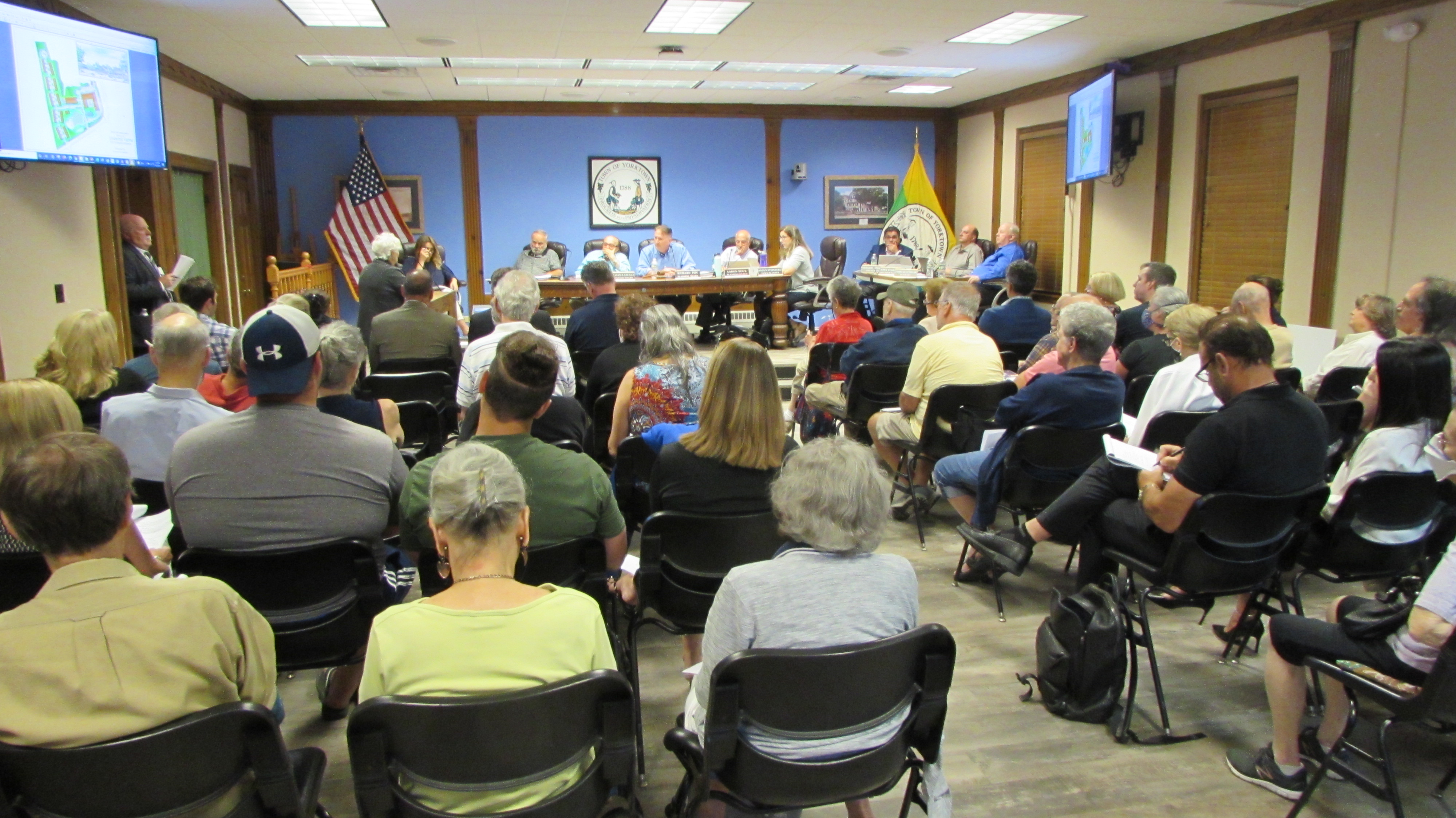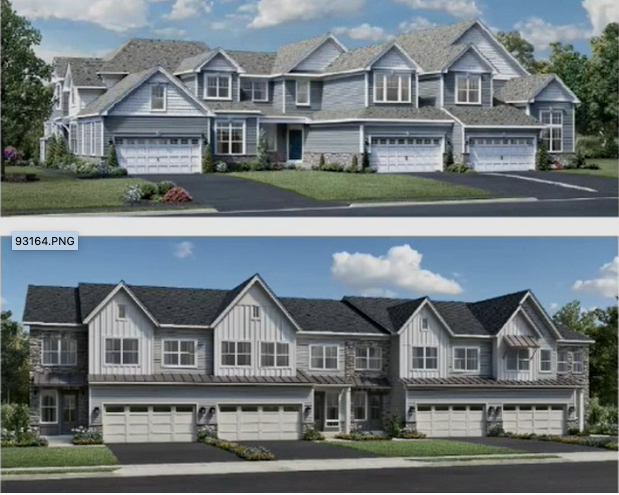Into the Woods
News Based on facts, either observed and verified directly by the reporter, or reported and verified from knowledgeable sources.
Proposed multi-family housing becomes a divisive battleground in northern Westchester

Good morning! Today is Monday, June 27, and you are reading today’s section of Examiner+, a digital newsmagazine serving Westchester, Putnam, and the surrounding Hudson Valley.
Need to subscribe — or upgrade your Examiner+ subscription to enjoy full access to all of our premium digital content? Take advantage of our special FREE TRIAL OFFER.
Take Examiner+ on a test drive today at NO CHARGE for a full month. Enjoy full membership-level access to all of our premium local content, delivered straight to your inbox six times a week.
This is a political ad from Dana Levenberg for New York Assembly.

By Jim Roberts

Clear-cutting several acres of majestic green trees that rustle in the summer breeze — or helping solve the housing shortage in Westchester. Your outlook could depend on the view from your back window — or on a desire that your millennial kids can afford a home here.
A Tuesday night in June at the Yorktown planning board meeting
The board members are listening to a mildly contentious discussion of a proposed additional drive-in lane at the Burger King. Will it require a yield sign — should the propane tanks stay above ground or be buried. These are the issues.
Normally, several stragglers, the videographer, and the interested parties would be the only people attending the proceedings. Tonight, the room is packed. All 60 seats are taken, and concerned citizens of Yorktown are lining the back wall and the entrance to the hallway. There’s one more item on the agenda.
Welcome to the front lines of the ongoing struggle between those who want to preserve versus the builders who must build. This time, the site is 14 acres of land where Unicorn Contracting Corp. in Garrison wants to build a 148-unit development off of Underhill Avenue on the abandoned site of the former Soundview Preparatory school.
The Unicorn project will include 118 senior-friendly housing units and 11,000 square feet of retail space. The developer says it will generate more than $1 million in new tax revenue annually, restore the historic Underhill House to the tune of $1 million and create public space for strolling along walking trails around a refurbished pond.

Suing to stop the project
An opposition group called “Protecting Yorktown’s Quality of Life Foundation Inc.,” a non-profit headed by local resident Trish Sullivan-Rothberg, says the project will demolish a park-like open space, compound current traffic congestion, and “if allowed, your property values will likely fall,” according to an ad the group published in the Examiner News.
“Protecting Yorktown” has filed a lawsuit in state court to overturn Yorktown’s new overlay district zoning rule that would let the project win approval under relaxed zoning laws. According to the lawsuit, prior zoning would only allow nine residential units per acre on the property, while the new zoning rules challenged in the lawsuit allow 15 units per acre.
The lawsuit states that a neighboring resident will “… lose the pastoral view and setting she has enjoyed for decades. Much of the existing tree cover and vegetation she now sees will be removed and replaced with unsightly townhomes and accessory outbuildings, refuse containers, and outdoor lighting completely out of character with the Underhill Farm’s current pastoral setting…”
In response to the lawsuit, Yorktown Supervisor Matt Slater issued a press release. “If our residents wonder why progress on revitalizing the Heights hamlet seems to crawl at a snail’s pace, they need look no further than tactics like this one for the answer.
“Over the years those who seem intent on blocking any change for the better have blocked or delayed many positive projects and even held up adoption of the town’s Comprehensive Plan. It is disappointing that someone so out of touch with town residents is desperately trying to block the much-needed economic progress for the entire town.”
Protecting their neighborhoods from development
The battle over the Underhill Farm proposal, another in Yorktown, and two Cortlandt projects, one in the new Medical Oriented District (MOD) and another at the former Colonial Terrace property called Overlook Terrace, involve nearly 800 multi-family housing units that will bring density to undeveloped acres of land. Opponents want to protect the natural settings of their neighborhoods.
Serious concerns over environmental damage, removal of trees (500 of 700 in the Underhill proposal), added strain on municipal water and sewer systems and more traffic on already congested roads are common.
While developers provide traffic studies and money to improve roadways, residents fail to see how more cars won’t bring bigger traffic headaches.
The Overlook Terrace project would demolish the former Colonial Terrace event and catering facility and build a three-story, 135-unit active adult rental community. New tax revenue of $235,000 would be generated annually, according to the developer.
The proposal in Cortlandt’s new MOD on 40 acres of empty land across from New York-Presbyterian Hospital would clear out acres of woodlands to build 350 or more housing units, nearly 200,000 square feet of medical offices, commercial space, and almost 1,000 total parking spaces. Over $4 million in new property taxes would be generated annually.
Without the approvals now being sought, the developer Val Santucci can only build single-family homes on one-acre lots on his 28-acre property.
Nearly 1,000 signatures have been gathered on online petitions opposing the project. Comments included in the record posted by the developers as part of the environmental impact statement object to the size and scope of the development.
“The MOD plans are too dense, too large, and too commercial, resulting in negative consequences for the quality of life of residents in MOD-adjacent neighborhoods,” one says. “Aesthetic considerations focus on the MOD as viewed from Route 202/35 or as an almost self-contained commercialized campus with little recognition that the MOD will be surrounded by long-established neighborhoods. The plans offer little or no consideration of the residents of these neighborhoods.”
Also in Yorktown, Toll Brothers wants to build 118 units of age-restricted townhouses in three- and four-unit buildings that would replace the wooded portions of the property, a 50-acre section of the Field Home site on Catherine Street. The loss of an existing soccer field has become an issue for opponents of that project.
The proposals will all wind their way through the approval process in front of multiple local boards over the course of many months, or even years. Lawsuits can add more time and money.

Supporting new multi-family housing
The Building & Realty Institute (BRI), a Westchester trade group representing housing and management interests, is promoting the construction of multi-family housing through its “Welcome Home Westchester” public awareness campaign. The campaign has wide-ranging support, including the Westchester Children’s Association, Child Care Council of Westchester, First Baptist Church of White Plains, and a host of others.
The “Welcome Home Westchester” campaign combines companies involved in the home building and development of housing with economic leaders like the Westchester County Association and Nonprofit Westchester, academics and think-tanks that have extensively examined the housing question, organizations dedicated to fighting against homelessness and supporting families in need, faith leaders and community advocates to drive forward a new conversation around housing in the county.
Citing statistics from a trade group, the BRI says “Single-family homes, which are the ‘default’ mode of housing in Westchester and the most likely to be built currently, are in fact ‘costlier’ per unit in terms of serving new residents, with a $35,000 estimated one-time cost in capital expenses for a single-family home compared to $22,000 for a unit of multifamily.”
The BRI campaign is also targeting the added cost to developers of an approval process here that can add years through delays to get sign-offs from the various boards in each town involved in the planning process.
“Getting someone to come out who really hates the project and seeing their neighborhood change at all is a very easy task and it always happens,” said Tim Foley, CEO and executive VP of BRI. “It should happen, we need to hear from all sides, but what we’ve found is it’s disproportionate toward those who have the motivation, so it’s not a full conversation of the whole community’s views.”
The public hearing process also makes it easy for boards to postpone consideration to the next meeting or require an additional parking study to be done, or look at another school analysis, making the project drag on, Foley said.
“The local land use board body is stacked with volunteers giving up their time for love of community, but often have spotty training,” Foley said. “They may not have an understanding of the financial effect some of their decisions may have on what can get built in their town. The result is everyone frustrated with the [housing shortage] problem but no idea how to shine a light on the solution.”
The BRI wants extended training sessions each year for volunteer board members covering a wide range of topics they deal with in analyzing development applications.
According to a report from Westchester County prepared by the Hudson Valley Pattern for Progress, Westchester needs over 11,000 total new units of affordable housing just to meet the present-day needs.
Multi-family housing is prominent in lower Westchester, with ongoing development in Yonkers, Port Chester, New Rochelle, and other more urban settings. But in northern Westchester, aside from Peekskill where several hundred units are under construction or seeking approvals, there can be strong resistance.
Making more new housing affordable
Given the high cost of housing here, one approach that municipalities have taken to address the issue is to require builders to set aside 10% or more of new construction as “affordable,” defined as 80% of the average median income in Westchester County, which translates on a scale from $77,650 for a one-person family to $128,650 for a six-person family.
Foley says that developers work with towns to make their projects financially viable with 10% affordable requirements and could offer even more if the towns can streamline the approval process.
One BRI member works 100% in the affordable space and often hears of desires for green roofs, more parking, and other requests from towns. “These are the needs they’ve expressed to me,” the developer tells Foley, “but what I’m looking for is certainty that we can actually put the shovel in the ground in a reasonable time.
“If I can get that, then I’m going to create this project that checks all the boxes for them. If I can’t get assurances then I’ll have to go somewhere else.”
One provision in a model ordinance created by the county suggests that communities adopt a rule that a proposal with 10% or more of affordable housing entitles the developer to a pre-application conference with a representative of each of the involved boards of the town.
Any issues with the project can be discussed up front and the town will provide a timeline for the application to get an up or down vote. “The single biggest problem with getting a lot of these applications together is not that the municipality says no up front – the problem is they drag it along for years and years and years,” Foley said.
The county can also help create more affordable housing by enforcing its stated goal of offering financial incentives in a consistent manner. In a recent case in Yorktown, the county backed down and provided money for sewer improvements without requiring an affordable housing ordinance, disappointing affordable housing advocates.
Speaking of general policy, Foley said sending a consistent signal is important for government agencies. “On issues like infrastructure funding, we would like to see a clearer message that there are strings attached,” he said.
Long into the night at the planning board
Back at the June Yorktown planning board meeting, which ran for four and a half hours, Sullivan-Rothberg and her supporters gave a series of presentations opposing the project and won applause from many.
Others speaking at the public information hearing emphasized that new senior housing would give them a chance to stay in Yorktown.
“I’ve lived here 46 years and I can’t maintain my house anymore,” said Brian Wolfson. “Senior housing will allow me to stay here and see my grandchildren grow up. I don’t want to wait for someone to die in Jefferson Village so I can move in. No one sells – they die.”
Jim Roberts is a kind-of retired business editor and writer, and a third-generation resident of Peekskill. He’s a supporter of local journalists who want to keep their communities informed about news in their world.
Examiner Media is a proud participant in The Trust Project.
CLICK HERE to review our best practices and editorial policies.
This piece is a news article. CLICK HERE to learn about our definitions for types of stories.
We welcome corrections, story ideas, and general feedback. CLICK HERE to use our actionable feedback form.
Visit www.TheExaminerNews.com to read our hyperlocal online community news, sports, and feature coverage.

Examiner Media – Keeping you informed with professionally-reported local news, features, and sports coverage.

